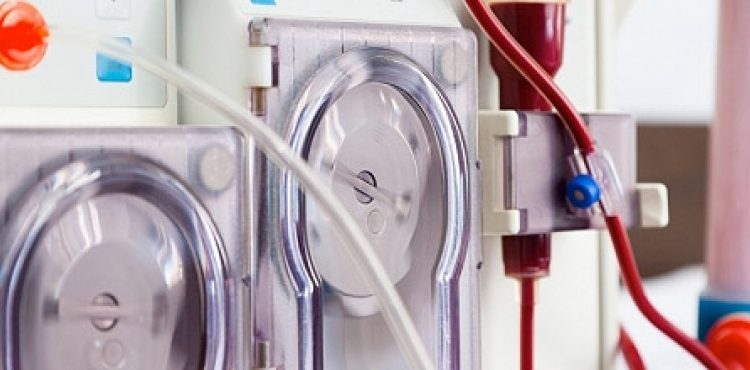
Cost-effective, safe and equitable access to dialysis, the need of the hour
“Ethical issues in dialysis therapy", paper published in Lancet
Efforts to providing affordable dialysis to those with end-stage kidney disease should be done in conjunction with more cost-effective efforts to prevent its development and reducing its progression using proven methodologies, argues a new paper published in the Lancet today.
The paper entitled “Ethical issues in dialysis therapy” argues that health systems should establish programs of kidney disease prevention and health promotion in conjunction with dialysis and transplantation programs. It also argues that health professionals and policy makers should strive reduce the costs of dialysis, using simple, safe and affordable modalities without compromising the quality of therapy provided to the patients.
Dr Vivekanand Jha, the lead author of the paper and Executive Director of the George Institute for Global Health, India said, “The aim of equitable access to renal replacement therapy and best practice care for all patients with end-stage kidney disease presents major ethical, practical and economic challenges for health-care systems. These challenges include increasing access to dialysis, helping patients and families to make the best decisions about management of advanced kidney failure and ensure that patients receive affordable high quality chronic dialysis that is based on standards accepted worldwide,”.
According to a systematic review of worldwide access to treatment for end-stage kidney disease published in the Lancet in 2015, an estimated 2.28 million patients died in 2010 because of non-availability or unaffordability of dialysis, almost all in low-income and lower-middle income countries. In India, almost 200,000 new patients need dialysis every year, and it is estimated that less than 30% of patients manage to receive this life-saving therapy.
To discuss the ethical issues around treatment of patients with end-stage kidney disease around the world, the International Society of Nephrology convened an Ethical Dialysis Task force, led by Prof Jha, to examine all aspects of the issue. The task force has outlined the ethical principles and goals for health authorities and dialysis care providers; provided practical recommendations regarding dialysis for health authorities and practice professionals for health professionals involved in dialysis care.
“As we in India embark on an ambitious national dialysis control program, we must ensure that minimum standards of quality and safety are established for dialysis units and regulations introduced where necessary to ensure standards are maintained,” says Dr Jha, adding that the audit systems should be designed to facilitate and encourage documentation of patient care and transparent reporting of costs and outcomes of care to provide an evidence base for decision making and objective evaluation of performance.
The paper also argues that access criteria and policy must be informed by an understanding of broader access issues relating to prevention and management of chronic kidney disease, supportive care, management of co-morbidities and complications, and general health-care services. And as patients approach the end of life, provision of palliative care becomes essential.
Dr Dominique Martin of Deakin University at Melbourne, one of the co-authors of the paper, said, “Physicians have an obligation to provide information about risk and benefits of dialysis and to support patients or their surrogate decision makers in qualitative evaluation of treatment options. People must be given enough information about the risk and consequences of dialysis so that they can start making decisions about initiation and withdrawal."
As practice recommendations, the paper says that nephrologists and renal care nurses should collaborate with other health professionals, social scientists, and ethicists, in the investigation of specific ethical issues at the local, regional or international level.



